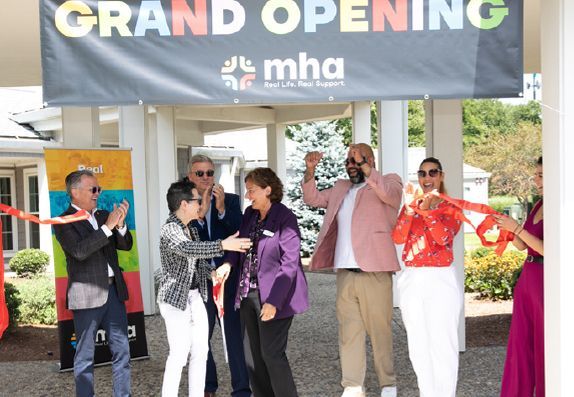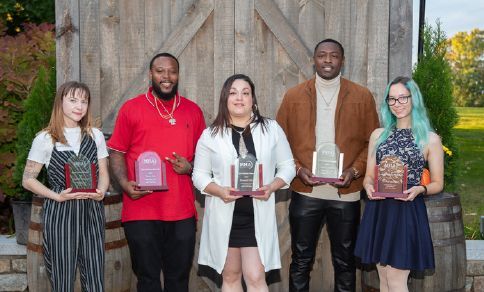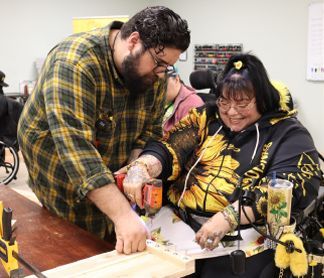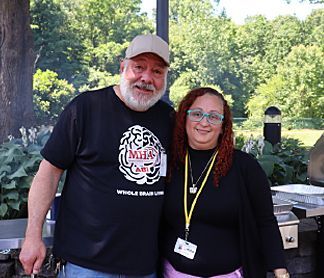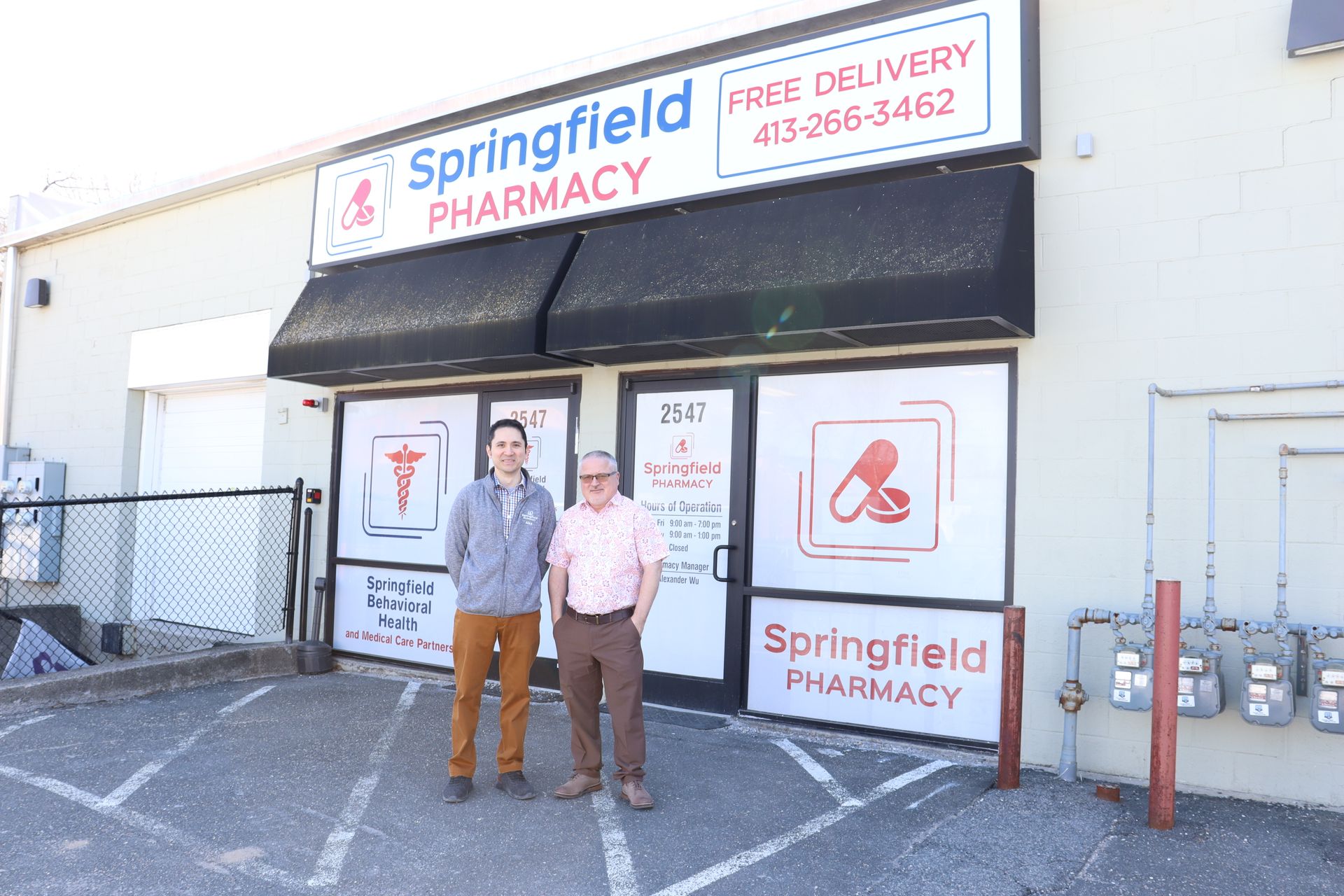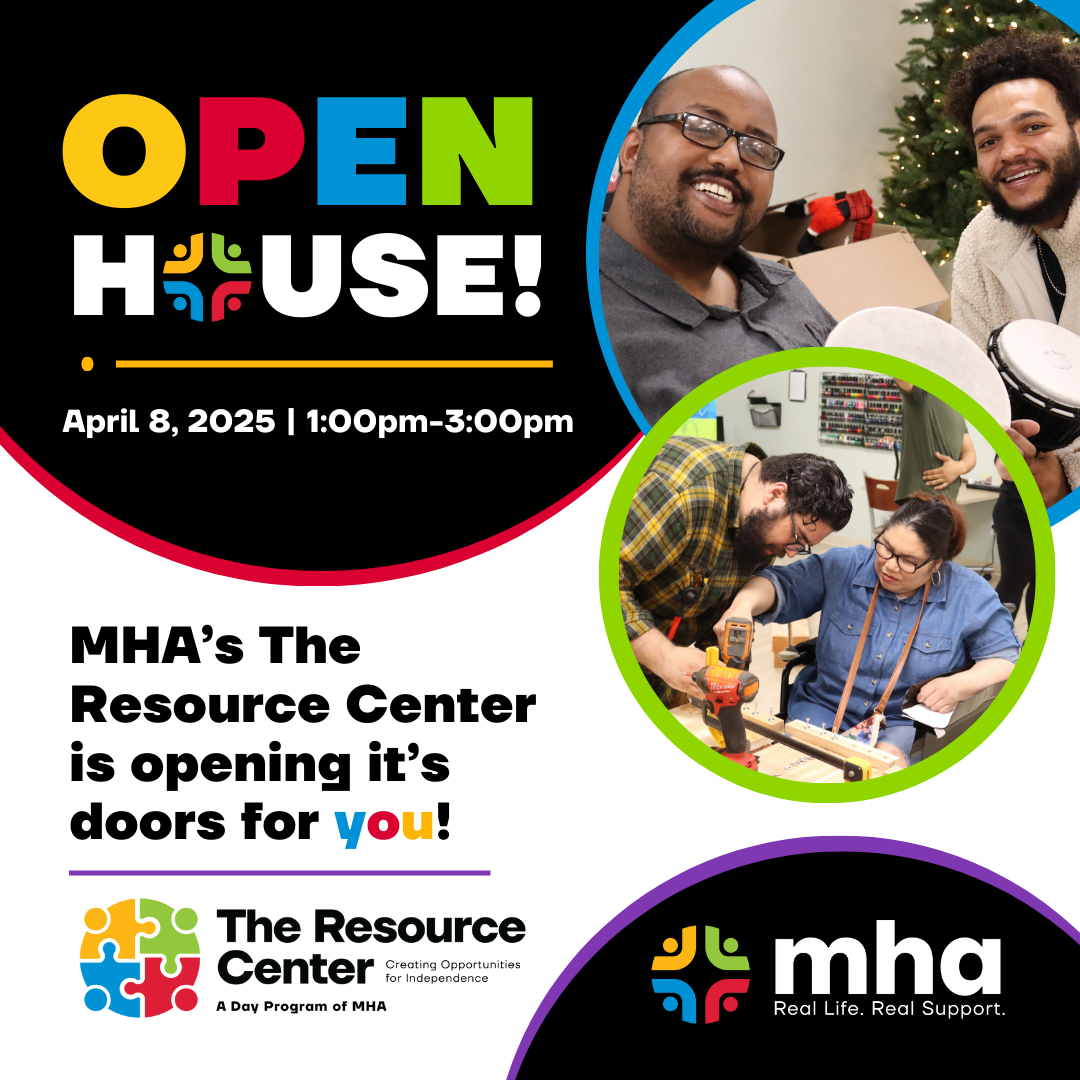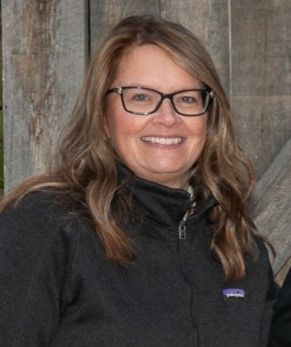Our FY24 Impact
MHA By The Numbers
Total Number of People Supported by MHA Programs
Amount of Funds Raised
Number of MHA Programs
Number of People Newly Housed
Number of Employees
Participants Served Under Employment Services
MHA Highlights
Purchased
our new administrative headquarters in Chicopee. This move represents a significant investment in the growth of MHA, positioning the agency to be more agile and better prepared to meet the needs of a greater number of individuals.
Introduced
several new programs that serve the intellectually and developmentally disabled, people with acquired brain injuries, and people with complex medical needs who are experiencing homelessness.
Expanded
our internship program to offer paid opportunities for interns seeking permanent employment in human services.
Created a new agency logo and website, strengthening our brand identity to give the community a more effective understanding of MHA’s mission and diverse programmatic offerings.
Voted
Best Nonprofit and Best Place to Work for seven consecutive years by MassLive and The Republican. This is an honor that MHA has received through community members casting their votes. We thank everyone who cast their votes in support of MHA.
Deciding How the World Sees You
MHA's New Way Services division is implementing adaptive technology to enhance the rehabilitative process for program members recovering from traumatic brain injuries. Adaptive technology and The Resource Center's (TRC) programmatic goals focus on independence through person-centered programming and encourage individuals to do as much as they can on their own, whether it's cooking, cleaning, or walking.TRC is experimenting with adaptive kitchenware, such as silverware, bowls, and cutting boards, each shaped to function and fit the needs of each member. With the help of occupational therapy personnel and the direct care team, the group learns to use the adaptive kitchenware to create delicious treats during snack group

TRC members have also been exploring the use of MusicGlove, a sensor glove that is designed to assist in rehabilitative therapy using interactive music and user-controlled hand movements. Using the glove, members can play popular musical games like Guitar Hero. Sara Kyser, VP of New Way Services, shared that motivation is often a significant challenge for individuals on the path to recovery. The use of adaptive technology has proven to be extremely helpful in motivating individuals to engage in their recovery.
New Way Services and TRC are truly transforming and redefining the way we think about and approach traumatic and acquired brain injuries.
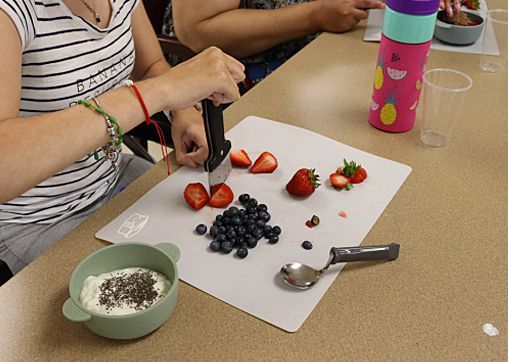
When Edwin arrived in the continental United States from Puerto Rico, he was like any hopeful dreamer striving to achieve the American dream. He found a job as a maintenance worker and began building a life with his wife and two kids. Unfortunately, Edwin found himself involved in drugs and was arrested on suspicion of drug-related activities. He was threatened with prosecution and was inadequately represented.
Subsequently, he spent the next 12 years moving between Hampden County Jail and House of Corrections and various state prisons due to mental health concerns.
After being released from prison, Edwin found himself homeless and began using drugs and alcohol just to survive. Eventually, he found his way to Safe Haven, where staff helped him apply for assistance from the Department of Mental Health (DMH). With their support, Edwin made tremendous progress in his recovery. He has since graduated from the program and has reconnected with his family. Edwin now lives in permanent housing but makes routine friendly visits to the program.
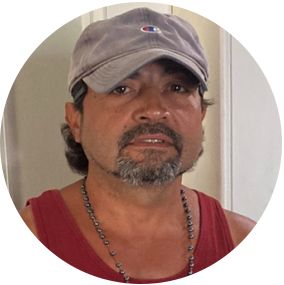
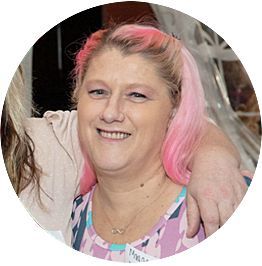
Approaching two years of sobriety, Maeggan faced the challenge of finding a meaningful opportunity after graduating from MHA's sober living program, Able House. She was seeking the next phase of her life - her next opportunity and passion.
With the help of the Able House staff, Maeggan explored MHA's employment services program tailored for program participants. MHA's employment specialist assisted her with her resume, conducted mock interviews, and helped her apply for jobs and benefits.
The intensive preparation paid off, and Maeggan landed a job as a dietary kitchen aide at MiraVista Behavioral Health Center. She was thrilled to have finally obtained a job she is passionate about and sees this as a stepping stone to even greater opportunities in the future. Having experienced similar challenges as the clients she works with, Maeggan feels a deep connection and sees her work as a way of giving back.
Maeggan is thankful to have found Able House and credits the program with helping her see what she is capable of. She hopes others find the services at Able House to be as impactful as they have been for her.
What We Do
MHA helps people live their best life. We provide access to therapies for emotional health and wellness; services for substance use recovery, developmental disabilities and acquired brain injury; services for housing and residential programming, and more.
Our Core Values
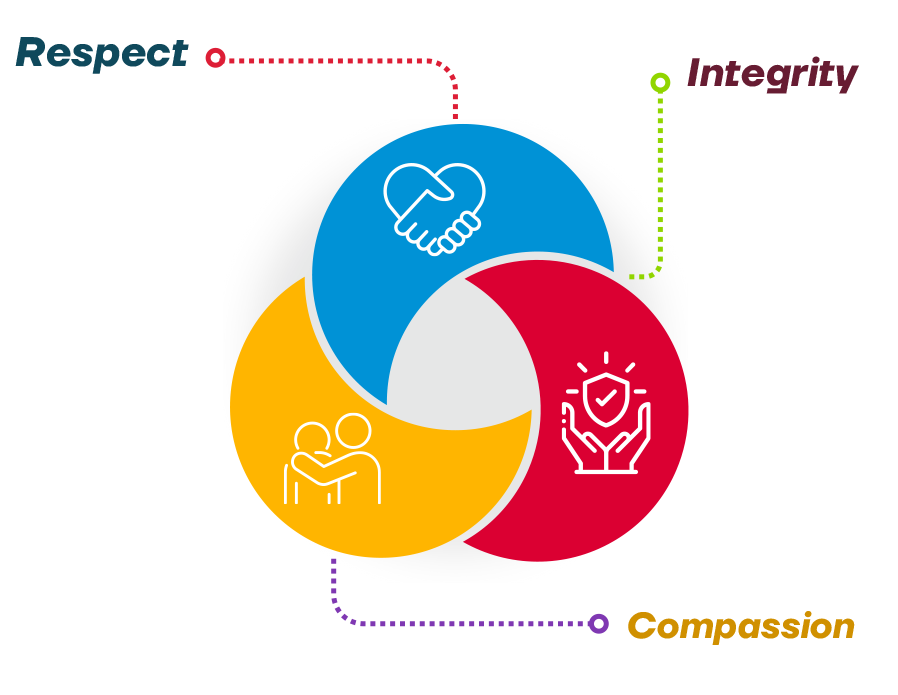

Our Divisions
Working from strength-based residential, outreach, and shared living models, MHA partners with those we serve to help them lead meaningful and productive lives in their community.
After a brain injury, MHA helps people move forward in their life—in a New Way. We transition individuals out of nursing homes and into purpose-designed residences, applying adaptive accommodations and advanced technologies along with personal care.
The BestLife Emotional Health and Wellness Center partners with adults, children, families, and couples impacted by the challenges of long-term or temporary mental health, substance use, and/or co-occurring concerns.
MHA applies the principles of Housing First to address homelessness and ensure that all people have access to safe and affordable housing. We also provide safe and homelike environments where those who have both a substance use disorder and a mental health diagnosis benefit from supportive, structured, and developmentally appropriate care.
Who We Are
Senior Leadership Team
Board of Directors
Nancy Mirkin, Chair
Donna-Rae Kenneally, Vice Chair
Joseph Lepper, Treasurer
Dee Cady, Clerk
Maria Puppolo, Director
Earl Miller, Director
Maureen Babineau, Director
Janette Vigo, Director
Neal Lakritz, Director
Darlene Libiszewski, Director

